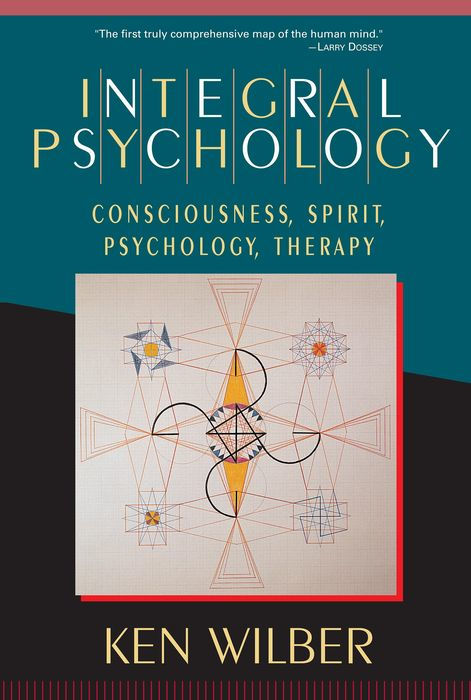Integral Psychology

from Integral Psychology, by Ken Wilber:
Psychology is the study of human consciousness and its manifestations in behavior. The functions of consciousness include perceiving, desiring, willing and acting. The structures of consciousness, some facets of which can be unconscious, include body, mind, soul, and spirit. The states of consciousness include normal (e.g. waking, dreaming, sleeping) and altered (e.g. nonordinary, meditative). The modes of consciousness include aesthetic, moral, and scientific. The development of consciousness spans an entire spectrum from pre-personal to personal to transpersonal, subconscious to self-conscious to superconscious, id to ego to Spirit. The relational and behavioral aspects of consciousness refer to its mutual interaction with the objective, exterior world and the sociocultural world of shared values and perceptions.
The great problem with psychology as it has historically unfolded is that, for the most part, different schools of psychology have often taken one of those aspects of the extraordinarily rich and multifaceted phenomenon of consciousness and announced that it is the only aspect worth studying (or even that it is the only aspect that actually exists). Behaviorism notoriously recuced consciousness to its observable, behavioral manifestations. Psychoanalysis reduced consciousness to structures of the ego and their impact by the id. Existentialism reduced consciousness to its personal structures and modes of intentionality. Many schools of transpersonal psychology focus merely on altered states of consciousness, with no coherent theory of the development of structures of consciousness. Asian psychologies typically excel in their account of consciousness development from the personal to the transpersonal domains, but have a very poor understanding of the earlier development from pre-personal to personal. Cognitive science admirably brings a scientific empiricism to bear on the problem, but often ends up simply reducing consciousness to its objective dimensions, neuronal mechanisms, and biocomputer-like functions, thus devastating the lifeworld of consciousness itself.
What if, on the other hand, all of the above accounts were an important part of the story? What if they all possessed true, but partial, insights in to the vast field of consciousness? At the very least, assembling their conclusions under one roof would vastly expand our ideas of what consciousness is and, more important, what it might become. The endeavor to honor and embrace every legitimate aspect of human consciousness is the goal of an integral psychology.
